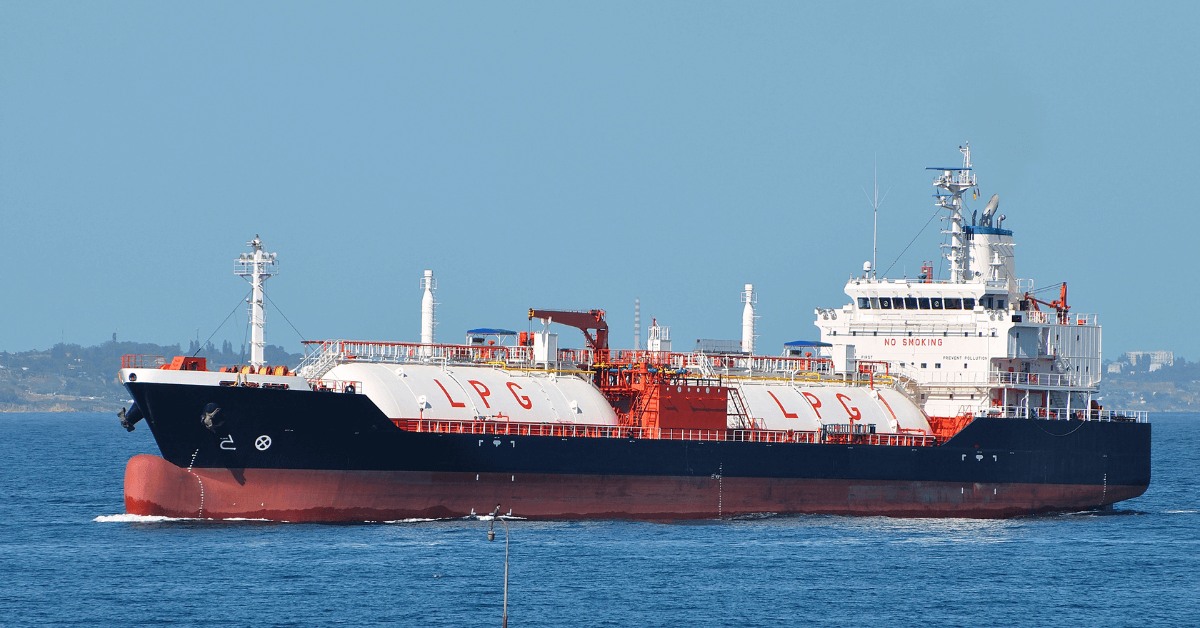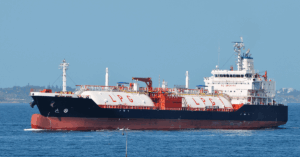
Wenatchee Becomes Largest U.S. Ferry To Go Electric After Historic Conversion
June 3, 2025
CMA CGM Feeder Hits Barge On River Scheldt, Injures 1 & Throws 2 Overboard
June 3, 2025

The US Department of Justice is investigating whether the Adani Group, one of India’s largest business conglomerates, imported liquefied petroleum gas (LPG) from Iran into India via its Mundra port, potentially breaching US sanctions on Iran. This was reported by The Wall Street Journal (WSJ) on Monday, citing people familiar with the probe.
The investigation focuses on several LPG tankers travelling between the Persian Gulf and Mundra, Gujarat, which displayed behaviour often associated with attempts to evade sanctions.
The tankers manipulated their Automatic Identification System (AIS) signals to hide their true movements and origins. For example, the tanker SMS Bros, registered under the Panamanian flag, renamed Neel, was shown through satellite images to be at an LPG terminal in Iran, although its AIS data indicated it was docked elsewhere. This tanker also showed inconsistent routes and discrepancies in port records.
The WSJ report revealed that some shipments originated from Sohar, Oman, and were handled by third-party logistics companies. It also pointed out that one of the vessels involved is listed by the US Energy Department as connected to Iranian petroleum exports.
The Adani Group strongly denied the allegations. In a statement, the company described the WSJ report as “baseless and mischievous,” rejecting any claims that it deliberately violated US sanctions or traded in LPG originating from Iran. The group also said it was unaware of any ongoing investigation by US authorities.
According to the statement, the Adani Group strictly follows a policy of not handling any cargo from Iran or vessels registered under the Iranian flag at any of its ports.
The investigation comes amid US President Donald Trump’s tough stance against Iran. Trump had warned that any country or individual buying oil or petrochemicals from Iran would face immediate penalties, including being barred from doing business with the US. This warning was part of his “maximum pressure” campaign aimed at shutting down Iran’s oil exports to prevent the country from funding militant groups and developing nuclear weapons.
While China imports over one million barrels of oil per day from Iran and seems largely unaffected by US sanctions, the US could target Chinese state-owned companies and infrastructure to pressure Beijing.
Trump’s administration had earlier withdrawn the US from the Iran nuclear deal negotiated under President Barack Obama and imposed similar secondary sanctions on countries buying oil from Venezuela, another member of OPEC.
Alongside the sanctions probe, the Adani Group is also facing other legal challenges. Recently, US prosecutors indicted Gautam Adani, the billionaire head of the group, and his nephew on bribery charges related to securing power contracts and misleading investors. These allegations have not been proven in court.
The US Justice Department has recently adjusted its enforcement priorities. Attorney General Pam Bondi has told prosecutors to prioritise cases involving money laundering and sanctions evasion linked to drug cartels and international crime groups.
As a result, some white-collar crimes, like foreign bribery and certain sanctions violations, are getting less attention. The policy change could potentially ease pressure on companies like the Adani Group, whose executives are currently facing legal scrutiny in the US.
Shares of Adani Group companies declined following the WSJ report, with Adani Enterprises falling about 2.2% and Adani Ports dropping 2.5% in early trading. Other group firms, such as Adani Total Gas, Adani Power, and Adani Green, saw stock declines between 1% and 2%. The Nifty 50 index, India’s benchmark stock market index, also slipped by 0.4%, with Adani firms among the largest losers on the day.
Attempts to get official comments from the Adani Group, Gautam Adani, and the US Attorney’s Office in Brooklyn were unsuccessful. The US Department of Justice also declined to comment when contacted by the media.
The Mundra port, operated by Adani, has been a key location in this investigation. In 2018, Adani Group and Gujarat State Petroleum Corporation announced the commissioning of gas terminals at the site, with the capacity to handle five million tons of LNG annually. India’s Prime Minister Narendra Modi had attended the inauguration of two gas pipelines linked to the port.
The Wall Street Journal reported that the Adani Group has hired US lawyers to lobby government officials to resolve these investigations.
References: Reuters, cnbctv18
Source: Maritime Shipping News


